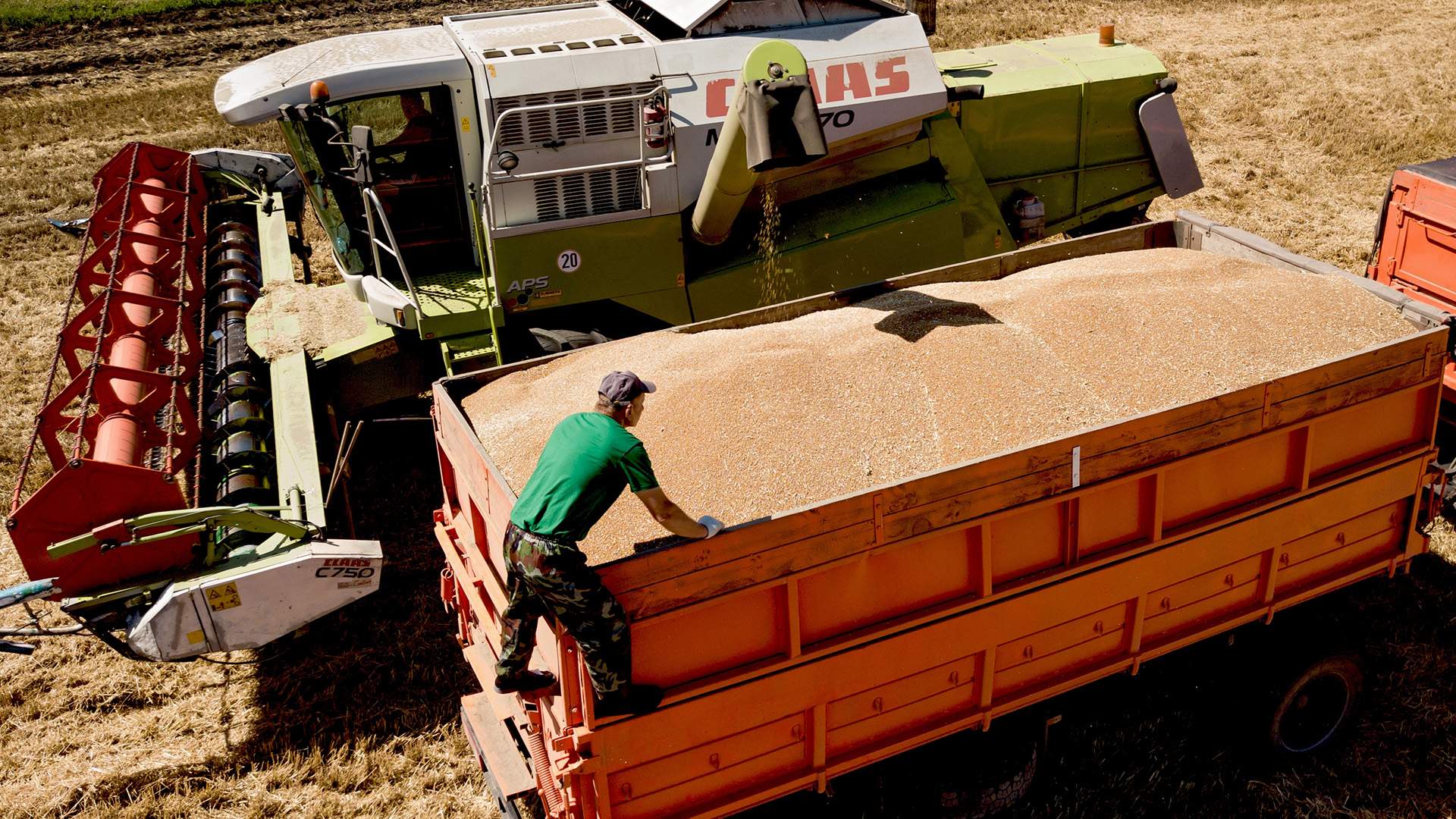Your own calculation: why is Russia creating the BRICS grain exchange

Russia will prepare a plan for substantive negotiations with the BRICS countries on the establishment of the grain exchange of the association. The BRICS supported Russia's idea of creating a grain exchange back in April. As a trading platform, it will strengthen the BRICS positions on the world stage and strengthen the food security of the Russian Federation — in the Izvestia article.
Transparent prices without intermediaries
As Dmitry Patrushev, Deputy Prime Minister of the Russian Federation, emphasized, with the organization of the exchange, the necessary prerequisites will be created for the formation of independent price indicators within the framework of the association. Taken together, this will correspond to a more objective assessment of the value of agricultural products on the world market.
According to him, the site will strengthen food security and increase exports of Russian grain. "The creation of the BRICS grain exchange will make a significant contribution to achieving these goals, help reduce dependence on Western trading platforms, and also create the necessary infrastructure to improve the efficiency of the grain market," Patrushev said.
Russia is a leader in grain exports. According to the results of the agricultural season-2023/24, the Russian Federation shipped abroad a record 55.3 million tons of wheat, which is more than 26% of world exports.
However, today global world grain prices are formed mainly through the US and European stock exchanges (for example, the Chicago or London Stock Exchanges). These sites may not fully reflect the real balance of supply and demand in the producing and consumer regions, and may also be subject to speculative influences, says Kristina Bakonina, Vice President of ACI Russia.
On the BRICS exchange, Russian exporters will be able to sell grain at prices that are formed on a more representative platform. This will also eliminate intermediaries.
— Until recently, most of the Russian grain was sold through major Western traders (Cargill, Archer Daniels Midland, Bunge, Louis Dreyfus). The new exchange will allow Russian exporters to interact directly with buyers from the BRICS countries and other countries of the Global South, bypassing expensive and potentially unfriendly intermediaries, the economist explains.
The creation of the BRICS grain Exchange is an important step towards the formation of an alternative infrastructure for global agricultural trade, independent of Western financial and logistics centers. For Russia, this is primarily a way to strengthen control over the pricing of its own agricultural products, primarily wheat, adds Vladimir Chernov, analyst at Freedom Finance Global.
According to the estimates of the Union of Grain Exporters, the BRICS commodity Exchange consolidates 30-40% of the global supply of key grain crops. The BRICS countries account for 348 million tons of wheat per year (44% of global production) with consumption of 323 million tons (41%). We are talking about both the leading suppliers and the largest buyers.
Food security
The platform will not only allow setting a fair price range, taking into account the interests of all countries of the association, but will also strengthen the food security of the Russian Federation.
Firstly, the launch of the exchange stimulates the development of its own infrastructure: logistics hubs, port facilities, storage systems, freight services and financial instruments that are not tied to Western standards, Kristina Bakonina points out.
In addition, the grain exchange will create an additional mechanism for guaranteed sales of products, stimulating agricultural production.
— Russia, as the largest exporter of grain, will have a lever to ensure stable sales of its products. Importing countries (China, India, Egypt, South Africa, Brazil) will have more predictable and reliable access to food. This will strengthen the economic sovereignty of the association and its ability to withstand external pressure," the analyst explains.
The exchange will allow building supply chains within the BRICS on the basis of settlements in national currencies, which strengthens the economic sovereignty of the participating countries, emphasizes Vladimir Chernov.
This will weaken dependence on the dollar system as well. The turnover of goods will require the building of an alternative financial infrastructure, which the West fears. As The Economist noted, this will allow us to act without regard to sanctions: BRICS will turn into a key political and economic force at the global level.
The new reality
Ultimately, the creation of such a platform will strengthen the geopolitical influence of Russia and the entire association both in the global food market and in the global economy as a whole.
— The BRICS countries will create a new global reality that Western countries will have to take into account. The BRICS countries, in particular Russia, will create global competition with cheaper grain and a new impetus for the global economy, where Western countries will have to take into account Russia and the BRICS countries," emphasizes Dmitry Semenov, Chairman of the Board of Directors of Transinvest.
The emergence of a new major player and a new trading platform will increase competition in the global agricultural market, which may lead to more favorable conditions for importing countries, adds Kristina Bakonina.
The next step, as discussed at the BRICS summit, should be the transformation of the BRICS grain exchange into a full-fledged commodity exchange, including trading in oil, metals and other resources.
According to Vladimir Chernov, this will set a precedent for the emergence of a global market with alternative infrastructure capable of challenging such giants as the CME Group or Euronext. Success, he said, will depend on trust in the new platform, transparency of clearing mechanisms and liquidity of contracts.
Переведено сервисом «Яндекс Переводчик»








